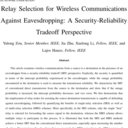The effects of Jiao-Tai-Wan on sleep, inflammation and insulin resistance in obesity-resistant rats with chronic partial sleep deprivation.
Từ khóa
trừu tượng
BACKGROUND
Jiao-Tai-Wan (JTW), composed of Rhizome Coptidis and Cortex Cinnamomi, is a classical traditional Chinese prescription for treating insomnia. Several in vivo studies have concluded that JTW could exert its therapeutical effect in insomnia rats. However, the specific mechanism is still unclear. The present study aimed to explore the effect of JTW on sleep in obesity-resistant (OR) rats with chronic partial sleep deprivation (PSD) and to clarify its possible mechanism.
METHODS
JTW was prepared and the main components contained in the granules were identified by 3D-High Performance Liquid Chromatography (3D-HPLC) assay. The Male Sprague-Dawley (SD) rats underwent 4 h PSD by environmental noise and the treatment with low and high doses of JTW orally for 4 weeks, respectively. Then sleep structure was analyzed by electroencephalographic (EEG). Inflammation markers including high-sensitivity C reactive protein (hs-CRP), tumor necrosis factor-α (TNF-α) and interleukin-6 (IL-6) levels were examined in the rat plasma. Meanwhile, metabolic parameters as body weight increase rate, fasting plasma glucose (FPG), fasting insulin (FINS) levels and insulin resistance index (HOMA-IR) were measured. The expressions of clock gene cryptochromes (Cry1 and Cry2) and inflammation gene nuclear factor-κB (NF-κB) in peripheral blood monocyte cells (PBMC) were also determined.
RESULTS
The result showed that the administration of JTW significantly increased total sleep time and total slow wave sleep (SWS) time in OR rats with PSD. Furthermore, the treatment with JTW reversed the increase in the markers of systemic inflammation and insulin resistance caused by sleep loss. These changes were also associated with the up-regulation of Cry1 mRNA and Cry 2 mRNA and the down-regulation of NF-κB mRNA expression in PBMC.
CONCLUSIONS
This study suggests that JTW has the beneficial effects of improving sleep, inflammation and insulin sensitivity. The mechanism appears to be related to the modulation of circadian clock and inflammation genes expressions in PBMC.


